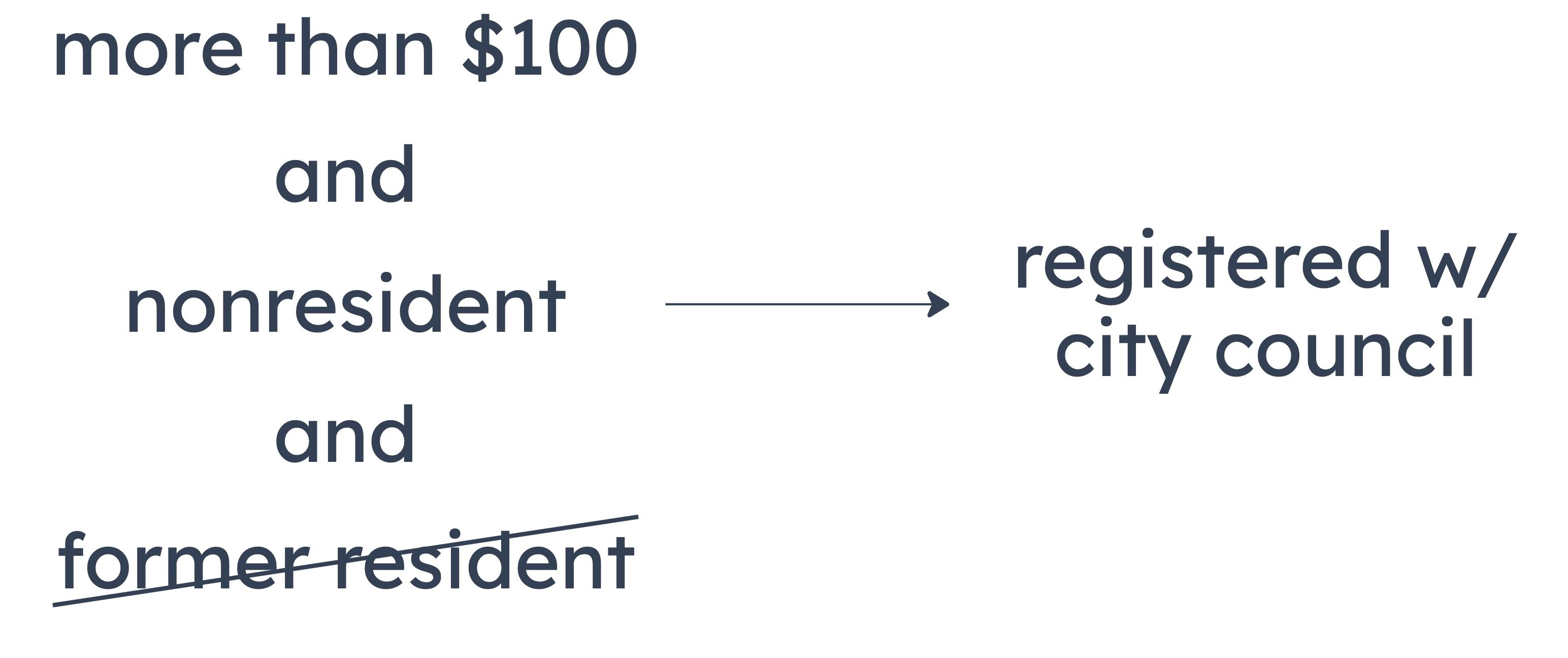They often decide to finish work when they reach a daily income target.
They tend to work fewer hours on busy days than on slow days.
A
The number of hours per day that a person is willing to work depends on that person’s financial needs.
B
People work longer when their effective hourly wage is high than when it is low.
C
Workers will accept a lower hourly wage in exchange for the freedom to set their own schedules.
D
People are willing to work many hours a day in order to avoid a reduction in their standard of living.
E
People who are paid based on their production work more efficiently than those who are paid a fixed hourly wage.
Further Explanation
The key to this question is understanding what an "effective hourly wage" means.
If you get paid a total of $100 over the course of a day, what's your "effective hourly wage"? Well, that depends on how many hours you worked. If you worked 1 hour to make that $100, then you're "in effect" getting paid $100/hour. If you worked 10 hours to make that same $100, then you're "in effect" getting paid $10/hour ($100 divided by 10 hours).
Understanding this helps to make (B) clearer as the correct answer choice.

Any contribution made by a resident of Weston doesn’t have to be registered with the city council.
Any contribution made by a former resident of Weston doesn’t have to be registered with the city council.
A
No nonresident of Weston contributed in excess of $100 to Brimley’s campaign.
B
Some contributions to Brimley’s campaign in excess of $100 were registered with the city council.
C
No contributions to Brimley’s campaign needed to be registered with the city council.
D
All contributions to Brimley’s campaign that were registered with the city council were in excess of $100.
E
Brimley’s campaign did not register any contributions with the city council.
This question's pretty tough so I hope you didn't spend too much time on it.
The stimulus tells us that "the law" is as follows. It's important for (C) to note that in context, we are to presume that this is the only law that pertains to contributions to mayoral campaigns in Weston.
What's "the law"?
If (1) $100+ and (2) currently nonresident and (3) never was a resident then must be registered.
For Brimley's campaign, we know that (4) he complied with this law and (5) accepted contributions from residents and former residents and no one else.
What must be true? (4) tells us that his campaign did not run afoul of the law (in other words, no contradiction). We overlook this fact because (4) is a conclusion and we're well trained to be skeptical of conclusions. But, this is a MBT question. The question stem explicitly tells us to presume that EVERYTHING in the stimulus is true. We must accept that in fact Brimley's campaign was run legally.
(5) tells us that Brimley's campaign failed the sufficient conditions of the law. Remember logic games lessons? Sufficient failed, rule irrelevant. In context, that means Brimley's campaign did not have to register any of its contributions. That's exactly what (C) says.
(A) is the attractive, trap answer choice. We're thinking, well, (A) must be true right?
If nonresidents contributed in excess of $100, then it would have to be registered.
First, that's false. This is true: if nonresidents who were never residents contributed in excess of $100, then it would have to be registered. See the difference?
Second, even if that's not false, we don't actually know if Brimely's campaign registered any contributions. We know that (C) they did not NEED to register. But maybe they registered for fun anyway.
A
The students compensated for any study time lost due to their jobs but they did not compensate for any study time lost due to their social lives.
B
The students who had full-time jobs typically worked late-night hours at those jobs.
C
Better students tend to choose classes that are scheduled to meet early in the morning.
D
A larger percentage of those students interested in majoring in history had part-time jobs than had full-time jobs.
E
Although having a job tends to provide a release from stress, thus increasing academic performance, having a full-time job, like having an active social life, can distract a student from studying.
A
Specialization within international trade comes with risks.
B
A natural disaster can destroy a whole season’s production overnight, devastating a small country’s economy.
C
A small country’s supply of raw materials can be used up in a short period.
D
Some countries rely on a small number of products for the export-based sectors of their economies.
E
When international trade is free, countries can specialize in what they export.
A
The cash prizes were too small to motivate an average adult to make a significant effort to produce stories of high quality.
B
People writing to win prizes show a greater than usual tendency to produce stereotypical stories that show little creativity.
C
Most adults show little originality in writing stories on a topic suggested by someone else.
D
The team of judges was biased in favor of stories that they judged to be more realistic.
E
No one explained clearly to either group what standards would be used in judging their stories.
Green: I disagree. Some of our salespeople with big territories wear out their cars in three years.
Hernandez: I meant three-year-old cars subjected to normal use.
A
by explicitly qualifying a premise used earlier
B
by criticizing salespeople who wear out their cars in three years
C
by disputing the accuracy of Green’s evidence
D
by changing the subject to the size of sales territories
E
by indicating that Green used a phrase ambiguously